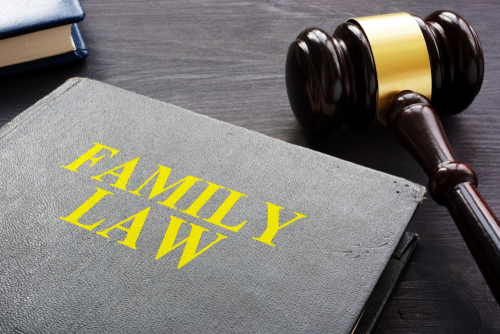If not removed, rock with Confederate flag should be factored into custody dispute, appeals court says

Image from Shutterstock.
A mother in New York risks losing shared custody of her mixed-race child as a result of a small Confederate flag painted on a rock near her driveway.
In a May 6 opinion, a New York appeals court said the flag should be removed by June 1. If not, the image should be considered a change in circumstances that must be factored into any future analysis of the child’s best interests, the appeals court said.
The Albany Times Union had coverage of the decision, followed by the Washington Post and the Hill.
The opinion lists the mother’s name as “Christie BB” and the father’s name as “Isaiah CC.” Currently, the mother and father share joint legal and physical custody of the child.
The girl was born in 2014 and is displaying behavioral issues, the appeals court said.
The court noted that the Confederate flag was not addressed by the lower court or the child’s lawyer, but the mother had acknowledged it during her testimony. She testified, however, that she had never used any racial slurs—in front of the child or at all.
The court noted that the mother has a First Amendment right to display the flag but said it should still be factored into the custody decision if it’s not removed.
“Given that the child is of mixed race,” the appeals court said, “it would seem apparent that the presence of the flag is not in the child’s best interests, as the mother must encourage and teach the child to embrace her mixed race identity, rather than thrust her into a world that only makes sense through the tortured lens of cognitive dissonance. Further, and viewed pragmatically, the presence of the confederate flag is a symbol inflaming the already strained relationship between the parties.”
The author of the opinion is Justice Stan L. Pritzker of the Appellate Division’s Third Judicial Department of the New York Supreme Court.
The law guardian for the child is lawyer Jason Leifer of Ithaca, New York. He told the Albany Times Union that the mother had recently moved into the home, and he wasn’t sure whether she was responsible for the presence of the rock. He said he thought the court’s reasoning was appropriate, but he raised the possibility that the opinion could be used by parties who want to litigate political views.
“I think parties will now raise objections to many symbols and opinions held by the other party, including some that the majority of society does not find offensive,” Leifer told the Albany Times Union. “What’s going to have to happen is this—if the issue is raised, the court will need to hear evidence of the child, how the child’s well-being is negatively affected by a parent’s views and opinions. In some cases this will be easy, such as if a child is being indoctrinated into a hate group, but in many cases, it won’t be so easy.”



